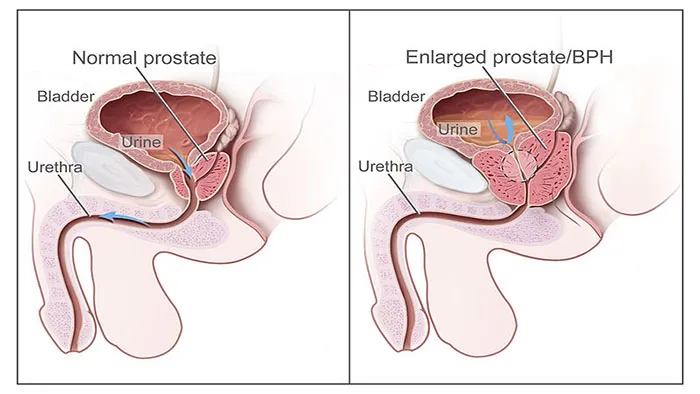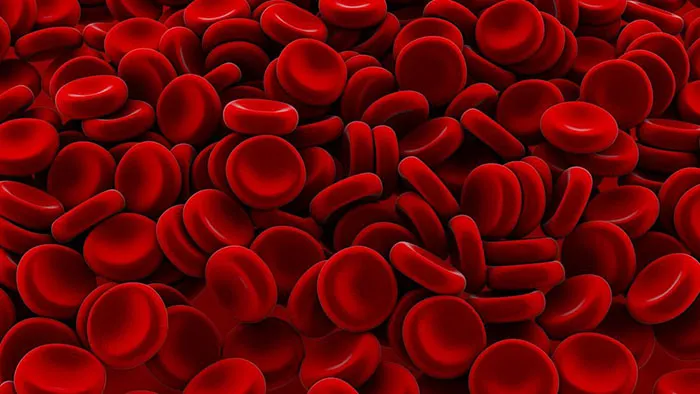Vitamin E is a fat-soluble vitamin with antioxidant properties that occurs naturally in many foods and can also be added to some foods for easier consumption. People who have trouble absorbing dietary fat or have a disorder of fat metabolism may not be able to absorb vitamin E.
Our bodies need vitamin E to maintain a strong immune system against viruses, bacteria, etc. Vitamin E deficiency occurs when the body does not receive enough of the vitamin.
Symptoms of vitamin E deficiency include difficulty walking or standing still, muscle pain or weakness, blurred vision, and general feelings of unwellness. A doctor can diagnose a vitamin E deficiency through tests that measure the vitamin’s level in the blood and by considering a patient’s symptoms. This deficiency can be corrected by increasing the consumption of vitamin E through dietary means or through vitamin E supplements.
How much Vitamin E should be taken?
Vitamin E supplements are an essential part of meeting the daily requirement of the vitamin. The daily requirement of vitamin E may vary based on factors such as gender, age, and physical conditions and problems, as indicated in the table below.
What are the symptoms of Vitamin E deficiency?
Impaired Immune Response – Vitamin E plays an important role in the proper functioning of the immune system. A deficiency in Vitamin E hinders the immune system’s ability to respond to harmful agents that cause disease. For example, a person with a Vitamin E deficiency may fall ill quickly and remain ill for several days. Additionally, symptoms of any disease can be severe in people who are deficient in Vitamin E.
Vision Problems – Vitamin E has several properties that protect our vision. Inadequate levels of Vitamin E decrease the ability to see, as a result of damage to the eye cells caused by free radicals.
Muscle Loss – Low levels of Vitamin E result in the decrease of fat in the muscles and muscle wasting.
Muscle Weakness – Not only does a low level of Vitamin E cause muscle wasting, but it also weakens the muscles. The mechanisms causing increased muscle weakness are the same as those causing muscle loss, as a Vitamin E deficiency allows free radicals to attack muscle cells.
Balance-related Problems – A Vitamin E deficiency also affects the nervous system, leading to a degeneration of the nerves in the hands and feet, a slower reaction time, and deterioration of coordination and balance. People who are severely deficient in Vitamin E are more likely to experience balance and coordination problems.
Cognitive Difficulties – The brain is highly sensitive to the effects of free radicals and oxidative stress, and Vitamin E deficiency can directly impact cognitive function, such as attention, learning, and memory. People with high levels of Vitamin E generally have better perception, recognition, and attention skills.
Digestive Issues – Digestive problems have also been linked to a Vitamin E deficiency.
Skin and Hair Problems – Our skin and hair are highly sensitive to external factors, and Vitamin E is an antioxidant that easily dissolves in fat, making it effective in dealing with external damage to the scalp and hair.
Other signs of vitamin E deficiency include:

- Prostate enlargement
- Impotence
- Miscarriage
- Decreased blood circulation
When to see a doctor?
If you are experiencing symptoms associated with vitamin E deficiency that affect your body’s ability to absorb fats, see your doctor as soon as possible.
What is the reason for Vitamin E Deficiency?
The most common causes of low vitamin E levels are:
Inadequate consumption of vitamin E – deficiency in vitamin E is usually due to poor dietary habits, such as eating a diet low in fruits and vegetables, low in fat, and avoiding processed foods.
A deficiency in vitamin E can also be caused by an underlying condition that prevents the body from adequately absorbing fat-absorbing vitamins, such as:
- Acute pancreatitis
- Cholestasis disease
- Cystic fibrosis
- Primary biliary cirrhosis
- Crohn’s disease
- Short bowel syndrome
In some cases, vitamin E deficiency is caused by a rare genetic condition called ataxia, which is based on neurological conditions and affects muscle control and coordination. Children aged 5 to 15 are more likely to develop it. Newborns, especially those born prematurely, may also be deficient in vitamin E.
How can I increase my vitamin E levels?
Vitamin E levels can be increased by consuming a diet high in vitamin E, including:
- Nuts (dried fruits)
- Cereal
- Oats
- Barley
- Rice
- Seeds
- Egg yolks
- Whole grains
- Green leafy vegetables
- Groundnut
- Soybean
- Corn oil
- Sunflower seeds
- Kiwi fruit, mango, guava, and peach.
- Wheat germ oil also plays an important role in vitamin E.
Doing aerobic exercise can also prevent vitamin E deficiency. Lack of physical activity can lead to a decrease in vitamin E levels in the body. Regular aerobic exercise is necessary, such as brisk walking, jogging, running, cycling, and swimming. Start slowly and complete your exercise routine by starting with a warm-up phase, followed by an exercise phase, and then gradually reducing to a final phase.
Limiting the amount of saturated fat, excessive sugar, and salt in your diet can also help prevent vitamin E deficiency.
How is Vitamin E deficiency diagnosed?
Doctors can diagnose a vitamin E deficiency based on current symptoms and past medical information, and often perform blood tests to confirm the diagnosis. A blood plasma level of 5.0 mg/L or above indicates a normal amount of vitamin E, while a level below 5.0 mg/L means a deficiency. Other tests, such as a complete hemogram or fertility tests, may also be needed to rule out other causes.
Treatment of Vitamin E deficiency:
Treatment for a vitamin E deficiency typically involves dietary changes and taking supplements under a doctor’s guidance. The underlying cause of the deficiency must be determined before treatment can begin. In some cases, other options such as medication or therapy may be necessary.
It is important to seek immediate medical help for a vitamin E deficiency, as it is a serious issue and self-diagnosis can lead to further health problems.
Diseases caused by deficiency of Vitamin E:
Nervous System – A deficiency in vitamin E can cause issues with the nervous system, such as sensations of burning, numbness, tingling, and pins and needles. It can also lead to a loss of sensation in the hands, feet, arms, and legs and difficulties with coordination.
Cardiovascular System – Vitamin E deficiency can lead to serious problems such as stroke and heart failure, as well as atherosclerosis.
Muscular System – A lack of vitamin E results in muscle cramps, causing sudden and painful spasms in the leg muscles, usually occurring at night. The spasms result in pain and weakness in the legs.
Reproductive problems – Vitamin E deficiency can lead to problems such as abdominal pain, flatulence, abdominal cramps, headache, and even miscarriage in severe cases. It also reduces the quality of semen.
Immune system – When vitamin E levels decrease, the immune system becomes weak, increasing the risk of illness and infection.
Cancer – Prolonged vitamin E deficiency increases the risk of cancer.
Skin problems – A deficiency in vitamin E leads to dry skin, premature aging, increased wrinkles, a dull complexion, and in some cases, skin problems such as eczema and psoriasis.
Hair-related problems – Vitamin E deficiency also leads to hair-related issues such as hair loss.
Eye problems – It can cause cataracts, blurred vision, and other eye problems.
Anemia – A decrease in vitamin E in the blood results in a decrease in red blood cells, causing anemia.
Liver-related problems – Long-term vitamin E deficiency increases bilirubin levels, leading to liver-related issues.

